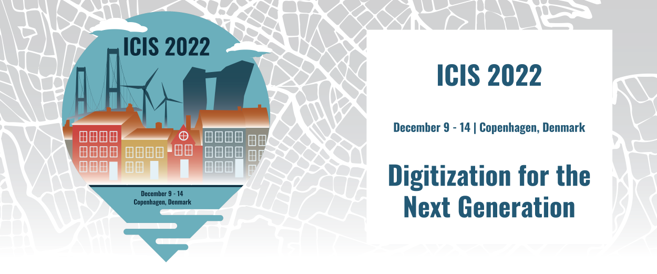Loading...
Paper Number
1443
Paper Type
Short
Description
Organizations need to develop digital competences to utilize digital technologies to succeed in digital transformation. Yet, current efforts on organizational strategies to develop digital competences, i.e., digital M&A or appointing a CDO, have been conducted in isolation. However, following digital ecodynamics, material, organizational and environmental factors are in fact interwoven. We aim to cater to this confluence by taking a configurational perspective on digital competence development and its effect on digital transformation. We integrate prior findings of digital competence on (1) the firm level and the role of knowledge resources, (2) the leadership level and competence of the firm’s upper echelon, and (3) the role of contextual complexities in the form of the firm’s environment and structure. Subsequently, we employ fsQCA on a unique dataset. Thereby, we disentangle the multifaceted complexity of digital transformation and provide more fine-grained conceptual insights into the phenomena.
Recommended Citation
Fabian, Nicolai Etienne; Weck, Michelle; Hanelt, André; Firk, Sebastian; Oehmichen, Jana; and Bhattacharya, Abhi, "Many Roads Lead to Digital Transformation: A Configurational Perspective on Digital Competence Elements" (2022). ICIS 2022 Proceedings. 3.
https://aisel.aisnet.org/icis2022/governance_is/governance_is/3
Many Roads Lead to Digital Transformation: A Configurational Perspective on Digital Competence Elements
Organizations need to develop digital competences to utilize digital technologies to succeed in digital transformation. Yet, current efforts on organizational strategies to develop digital competences, i.e., digital M&A or appointing a CDO, have been conducted in isolation. However, following digital ecodynamics, material, organizational and environmental factors are in fact interwoven. We aim to cater to this confluence by taking a configurational perspective on digital competence development and its effect on digital transformation. We integrate prior findings of digital competence on (1) the firm level and the role of knowledge resources, (2) the leadership level and competence of the firm’s upper echelon, and (3) the role of contextual complexities in the form of the firm’s environment and structure. Subsequently, we employ fsQCA on a unique dataset. Thereby, we disentangle the multifaceted complexity of digital transformation and provide more fine-grained conceptual insights into the phenomena.
When commenting on articles, please be friendly, welcoming, respectful and abide by the AIS eLibrary Discussion Thread Code of Conduct posted here.



Comments
17-Govern